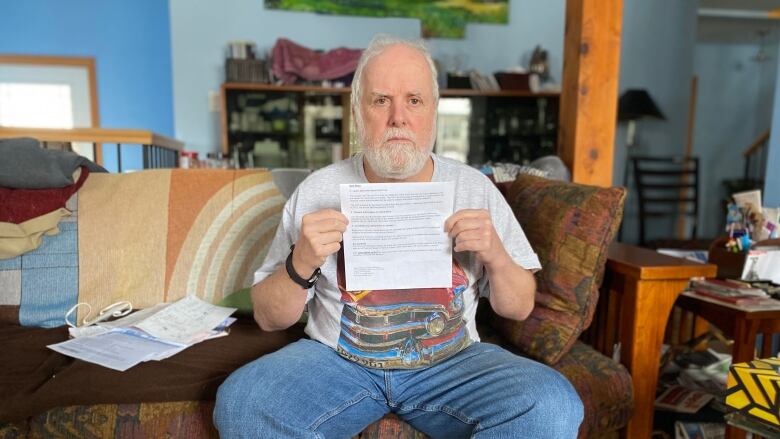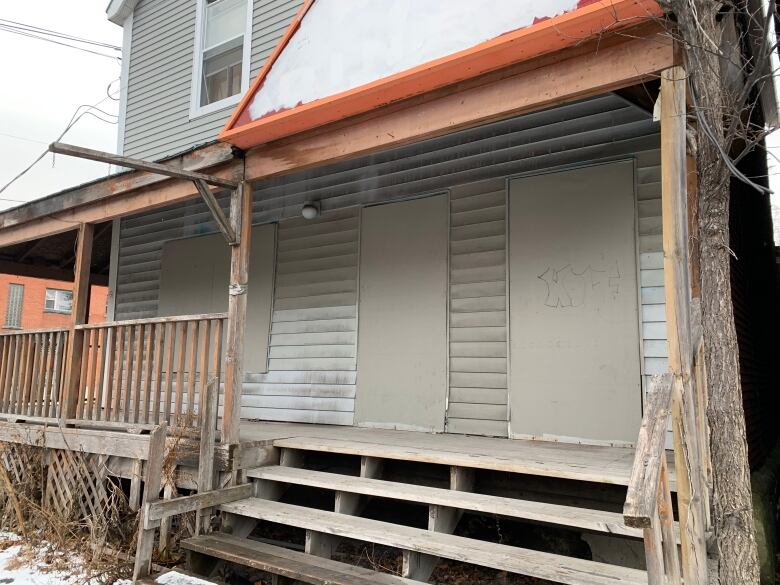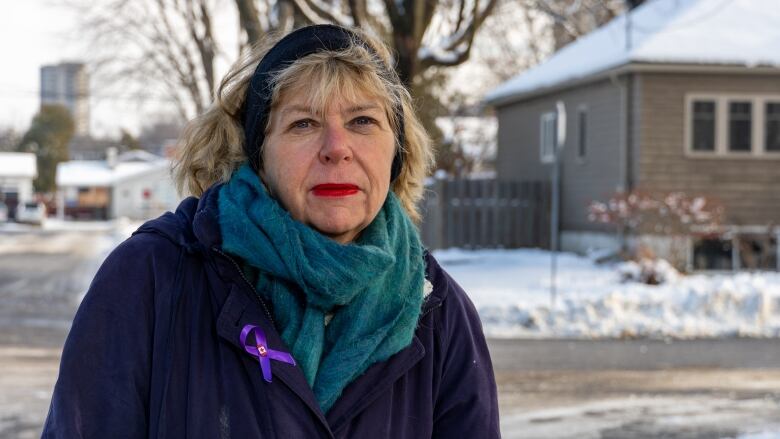'Guilty until I prove I'm innocent': Homeowners frustrated by vacant unit tax rollout
Owners have until March 16 to check box saying their units are being used

Some Ottawa homeowners and landlords areexpressingfrustration and confusion over a new tax they could haveto pay unless they opt out by checking a box.
City council passed the vacant unit taxlast spring,in an effort to increase affordable housing by cracking down on livable homes that may be sitting empty for six months or more ayear.
The tax doesn't apply to someone's principal residence, yet homeowners who forget to check the box by mid-March each year risk paying a $250 late fee which is being waived for 2023 or possibly thousands of dollarsin taxes, equivalent to one per cent of a property's assessed value.
Tom Ryan wasn't impressed when a letter arrived in his mailbox in November.
"They're imposing a rule on us, when my interpretation of our justice system is you're innocent until proven guilty. And this is an implication that I'm guilty until I prove I'm innocent," saidtheVanierresident, who's owned his home since the early 1990s.
This letter went out to homeowners in November. The city plans to send another in January.
Ryan is one of several residentsCBC heard from who are voicing concerns about the implementation of the new tax.
He said he agrees with itsultimate goal,but not the implementation,known as negative option billing. He believes the city should rely on data from utilitybillsinstead to determine if a home is vacant.
'Death by one thousand cuts'
It's a sentiment shared by the Ottawa Small Landlords Association.
Founder Tony Miller said they support the overarching goal as well but believe it's flawed as much of what it hopes to achieve is already covered by other municipal, provincial and federal laws.
That includes both Ottawa'sshort-term rental bylaw and the provincialforeign homebuyers tax, he said.
"One landlord told me it's death by one thousand cuts," Miller said. "And that's the impact that all these bylaws are having."

Vancouver implemented a one-per-centtax in 2017 that's gradually increased since then. It's brought in $32 million for affordable housing and "returned" more than 4,000 homes to locals.
Toronto will introduce a similar tax this year, with Hamiltonfollowing suit in 2024.
In addition to not covering principal residences, Ottawa's tax has otherexemptions, including for homeowners who've died or arein hospitals orlong-term care homes.
The cityexpectsto bring in $25 million in net revenue over the first five years, with the money meant to help fund affordable housing units.
'No magic bullets'
Some experts sayOttawa'shousing landscape can't be compared tothose larger cities.
"This is a drop in the proverbial bucket," said Ian Lee, an associate professor at Carleton University's Sprott School of Business.
"If all the alleged empty units vanished, were rented, itwould barely move the needle. It would barely show up statistically in terms of the shortfall in units in Canada."
Carolyn Whitzman, a housing policy adviser in Ottawa, said that while Vancouver's tax freed upa number of condo units,there are"no magic bullets."
"It's not going to be a revenue stream that's going to lead to, you know, thousands upon thousands of affordable units. But it's one of the mechanisms that cities are looking at."
What Ottawa does have, she said, isa lot of government-owned land much of it close to LRT that can be used to build affordable housing.

Delay suggested
In December,Orlans East-Cumberland Coun. Matthew Luloffraised the idea of delaying the tax for one year, saying people are "confused" and "upset."
"I've got residents that are caring for somebody who's on the tax roll who has dementia, who doesn't understand what's going on, who doesn't understand why they're being taxed," Luloff told council.
Bay Ward Coun. Theresa Kavanagh said she supportedthe tax after hearing a "significant" number of complaints from residentsupset about the number of homes sitting empty and neglected.
But she said she also understands the fear and confusion surrounding the tax. And with the first notices only going out in November, it's been a learning process, she said both for residents and the city.
"I don't want to see people inadvertently punished for justforgetting or other things like that," she said. "I want to make sure this goes as smoothly as possible."












_(720p).jpg)


 OFFICIAL HD MUSIC VIDEO.jpg)
.jpg)



























































































